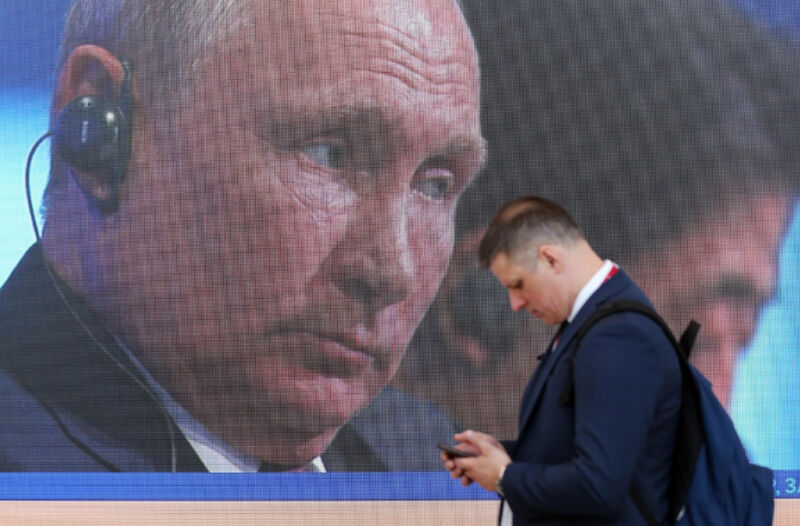
The US is considering restricting the flow of semiconductors into Russia to deter Russian President Vladimir Putin from invading Ukraine. The move would prevent the Russian military and much of the nation’s economy from advancing technologically.
The details of the sanctions are still being decided, but they would rely on similar restrictions that kneecapped Huawei, the Chinese tech company. Though most semiconductors are made overseas, US companies control huge swaths of the larger market, from chip design and manufacturing equipment to process and quality control. By restricting access to those companies' products and services, the US can effectively limit Russian access to the latest chips, even if they’re made in other countries.
“It’s one of the tools that the US has come to prefer because it’s painful, but it doesn’t involve the use of force,” James Andrew Lewis, senior vice president and director of the Strategic Technologies Program at the Center for Strategic and International Studies, told Ars. “It sort of freezes Russia at a technological moment.”
Though most of the restrictions will likely focus on companies that supply Russia’s military, either directly or indirectly, one place where consumers could feel the pinch is mobile phone service. If implemented, the restrictions would “box the Russians out of the 5G market,” Lewis said.
“Death Star”
Today, Russian companies can get 5G equipment from Ericsson and Nokia, but the European companies would likely follow any US sanctions, Paul Triolo, head of geotechnology at Eurasia Group, told Ars. The other major player in the Russian telecom market, Huawei, hasn’t been able to deliver true 5G since the US prevented TSMC from making their chips.
To supply the Russian market, companies like Huawei may have a few options to deliver 5G-like speeds, but the result would be imperfect. “You can design a broader architecture that gets you some part of the way toward the performance part, but it’s hard because of power consumption with broad 5G deployments,” Triolo said. “You need the throughput, the latency, and the power consumption. It’s really hard to get that without advanced nodes below 7 nm or so.”The sanctions against Russia would be implemented under the foreign direct product rule, which allows the government to impose restrictions on how companies use US technology, even in other countries. Previously, this rule was mostly aimed at companies that would sell directly to foreign militaries. But under the Trump administration, the rule was extended to include certain semiconductor-related technologies to target Chinese telecom suppliers Huawei and ZTE.
The statutory authority in this area is “fairly broad,” Triolo said. “This rule is sort of like a Death Star. We can point it at things we don’t like, and ‘boom.’” The rule can target individual products or even entire countries “because that’s the way this thing is written. It’s really pretty broad,” he said. “That Death Star can be scaled up from something you can hold in your hand to something huge.”
reader comments
445